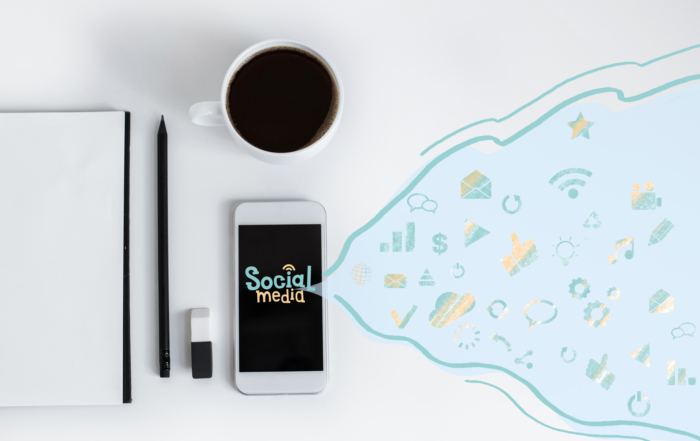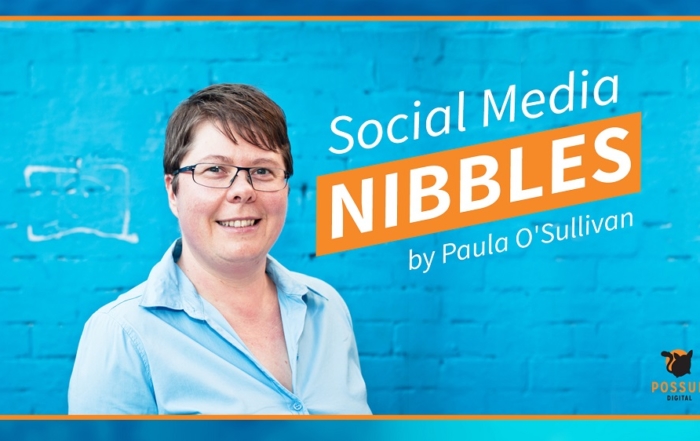
May 14, 2018 | Blog, News
What metrics should I be looking at?
What metrics should I be looking at?
One of the most popular questions I get asked is “So how do I know if social media is working for me?”. The obvious answer is in the increased sales and customers coming your way, but there are other metrics that can help you understand what’s working and what’s not, and how to use them to change up your strategy.
Now a small word of warning to point out here, you do not want end up in analysis paralysis, that is, with so much data that you have no idea what it is telling you, or how to even know what to stick with or change. So, try and use a maximum of 2 to 3 key metrics that are the most relevant to you and measure those at regular intervals (either fortnightly or monthly, which ever you can resource).
Additionally, you will use different metrics based on what your objectives are, and where you are in the marketing funnel.
Let’s look at what data you can use, depending on where you are in your online marketing.
Metrics for awareness
Here, you’ll be using social media channels to grow awareness of your brand, and let prospective clients know that you are available to help them. We also call this the ‘know me’ phase.
Examples of metrics you can use to see how your awareness is increasing:
- Increase (or decrease) in Facebook fans, Twitter followers or Youtube subscribers
- How much traffic you drive to your website from your social media content
- Video views on your Facebook or Youtube videos
Metrics for engagement
Once you start to gain a following, you’ll be looking to engage with them to create a relationship and warmth towards your brand. This is also known as the ‘like me’ phase.
Examples of metrics you can use to see how your engagement is increasing:
- Likes, share and comments on your Facebook posts
- Retweets and replies to your tweets
- Comments on and sharing of your blog content
Metrics for conversion
This, as the name indicates, is where your marketing efforts converts to financial opportunities in the form of sales, whether its repeat business or brand-new customers to you business. This represents dollars in the bank, and an easy way to measure your return on investment (ROI).
But, there are other conversion points you can be measuring. For example, if you are running a campaign where you are building your email database, having someone fill out a form and give you an email address (or even a phone number) is also a conversion.
Define what conversion means for you within a specific circumstance and then measure that.
Over to you
Now that you know what to measure, how will you know if your marketing is adding value to your business?

May 1, 2018 | Blog, News
Social Media Nibbles E02: To Facebook, or not to Facebook?
Hello, and welcome to Social Media Nibbles. I’m Paula O’Sullivan, Social Media Strategist and head Possum at Possum Digital. In this episode I want to ask you the question, ‘To Facebook or not to Facebook?’
It seems that Facebook and Mark Zuckerberg are regularly not far from the news headlines, and usually not in a good way. Whether it’s the Cambridge Analytica scandal, or being attacked for making wholesale changes to its newsfeed resulting in many publishers losing substantial reach, the perception is that Facebook is losing support, and fast.
Not long ago, the #DeleteFacebook, was trending. Even well-known CEOs like Elon Musk participated in that campaign, and we’ve heard of a UK pub chain that has completely deleted it’s social media presence, or it was intending to anyway.
It seems that there are daily calls to jump off Facebook in the name of protecting your data. Although I’d say it’s a bit late to worry about Facebook, or even Google, having your data ’cause I’d say they’ve pretty much got what we’ve all handed over.
Facebook seems to get a bad rap, it appears more so than any other social network or even big online companies like Google. So is the bad press warranted or deserved?
We must acknowledge up front, in my view, that social networks, including Facebook, have made it much easier to bully others 24/7 and anonymously. We have all heard of, and know about, the keyboard warriors who go out there and troll and destroy lives. We’ve heard of all the trolling that happens, especially towards women, and especially by anonymous keyboard warriors, that is terrifying and just brutal.
And there’s no doubt that it has contributed to changes in how we communicate and relate to each other. How often have we had a quick scan of Facebook before we catch up with someone to know what they’ve been up to? Which does kind of feel like stalking, but I bet you’ve done it at least once, I know I certainly have.
And many of us use Facebook as an escape from everyday life.
Think about this are you able to simply sit by yourself for five minutes with only your thoughts keeping you company, without the temptation to whip out your smart phone for a quick peep at Facebook? Or even Instagram or LinkedIn or something else?
And yet, in spite of all this, Facebook have just announced that it has increased, its daily users in the first quarter of 2018. That is incredible.
So, what can we actually put this down to? In my view, Facebook has become so ingrained in our lives that we have not found anything to replace it. We have become reliant on it to keep in touch with distant friends and relatives, find places to eat out, get recommendations for other goods and services, and share what’s going on in our lives quickly and easily.
My mate, Abbie, told me, “I found Facebook really useful to connect with people I had lost contact with. I found people I went to school with and reconnected. I also feel like it’s a way for me to feel connected and keep in touch with people at home. I love seeing pictures of my cousin’s kids and seeing what friends at home are up to. I’ve not been back to the UK in two years, but I still feel I connect regularly via Facebook.” And I know many, many, many people feel exactly the same way as Abbie does.
Facebook, I believe, facilitates a conversation and a connection with others that wouldn’t happen otherwise. It actually helps us overcome geographical barriers, so that we can have those connections instantaneously. It is much more peer to peer than Twitter or Instagram, and much more personal than Snapchat. And definitely, definitely more personal than LinkedIn.
During the height of the # DeleteFacebook trend, the Guardian published an interesting article titled, “The Missing Link: Why Disabled People Can’t Afford to Delete Facebook.” If you haven’t read it already, I encourage you to seek it out on the Guardian website. I’ll also drop a link of it on the Possum Digital Facebook page, so go and find it there too.
The article explores how Facebook can help people with disabilities overcome social isolation due to physical or mental health issues. It opens up a world of possibility that would otherwise be closed off. And for me, this quote that I’m about to read you is the most compelling quote of the article, and I do want to read the passage directly from the author and leave it in her words.
“For Alice Strick, social media has created new communities and a dream job she thought she never would have. The 28 year old was unable to complete her art degree in 2011 due to severe depression and borderline personality disorder, and she worried that her mental health had totally scuppered her chance of success as an artist. Unable to find an art workshop she could afford during her recovery, she used Facebook to set up her own after others shared the event, 1,000 people asked to attend. Now 18 months later, putting on workshops for women with mental health problems is Strick’s full time job. After forming a connection via Instagram, she has been commissioned to hold one at the Tate. “Without social media” she says, “I would not have had a career that I love and that I am proud of. I wouldn’t be so far along in my mental health recovery.”
And there are certainly many more stories like that.
Another example of Facebook being used for the purposes of good, popped up in my own newsfeed last week. An article from the Sydney Morning Herald on the 26th of April titled, “How Facebook Friends Saved One Man From Execution” talks about how a Yemeni refugee, Mohammed Al-Samawi, relied on people he had met through Facebook, including Australia and the United States, spent 13 days planning his rescue in the midst of civil war.
For Mohammed and his peers, Facebook was also an important source of news within Yemen, he could follow what was going on and escape Yemen alive. It’s an incredibly powerful story, go and read it. I’ll put a link to the article on the Possum Digital Facebook page as well.
Now, coming back to the original question, to Facebook or not to Facebook? Well, I’ll be sticking with Facebook and I know many others will too. As much as it can harm, it can also be a force for good, and that’s what I’ll be focusing on.
Thank you so much for listening, and if you liked what you heard in this podcast, please subscribe and share it with your friends.

Apr 20, 2018 | Blog, News
Social Media Nibbles E01: Big Marketing Changes are Coming. Are you Ready?
Hello and welcome to Social Media Nibbles, I’m your host Paula O’Sullivan, social media strategist and head possum at Possum Digital. Today in our very first episode we’re going to have a look at what marketers need to know for when GDRP rolls out on May 25 and how this may impact us here in Australia.
Now first a very short disclaimer, this podcast is not legal advice for your company to use or rely on in complying with any data privacy laws, like the GDPR or the Spam Act. It purely serves to provide background information to help you better understand these issues. Please contact your lawyer for specific advice.
Now back to the podcast.
Unless you’ve been hiding a rock you know that Facebook has been the subject of much controversy, especially on the issue of personal privacy. Well this combined with the European General Data Privacy Regulation will see huge changes to the way we collect and use data to market our goods and services to potential customers.
Taking a quick step back, in Australia we currently have the Spam Act and also privacy legislation, which governs certain marketing activities. For example to be able to send commercial or electronic messages, like broadcast email marketing or SMS, you need to gain express consent to collect and use that information. You also need to make sure that you store personal data, like email addresses and phone numbers in a safe and secure way.
If you do not have consent you’re effectively sending spam, and we all know what spam is like. You sign up to an email list, all of a sudden you get bombarded with email marketing and things that you never thought you’d receive from anyone else. If someone has not gained your consent, they can’t send email marketing to you. So just be aware.
So how will GDPR impact what we do as marketers in Australia? At this point I want to highly recommend that you speak to a lawyer, if you want to know if your business will definitely be impacted by GDPR or not. Even if you’re in Australia you can be impacted, so make sure you get advice.
Broadly the key changes are around two central themes, firstly express consent and stronger regulations around that. Secondly data rights.
Let’s work through this issue in a classic marketing funnel.
When someone arrives on a lead capture page or blog page of your website, there will need to be explicit transparency around how their data will be used. This is not just for collecting email addresses but also for third party pixels. If you’re using say a Facebook pixel or a Google pixel to re market to people that come to your site, then they need to know what you’re actually going to be using that data for.
If you haven’t done it already, this is the point at which you need to review your privacy policy and terms and conditions on your website.
If someone comes along, gives you their information, agrees to the purpose that you’ll use that data, you need to make sure that you’re very clear about what you’re going to be using it for.
So if this person decides to give you their information, only collect the information that is relevant to why you are wanting to have it in the first place. If you don’t need a phone number, so if you’re giving away something for free that you’re going to be sending via email, and you have no reason to phone this person, then think about whether you actually need to collect it or not.
The third piece to this funnel puzzle, data needs to be stored in a secure way, and be updated if requested. If someone rings you up and says, hey I need to change my phone number, my address, my email. You need to update that as per their request, and businesses will be required to keep records to prove that they have consent to hold the information.
Coming back to the reason why data was collected in the first place, you can only use what you’ve collected for the purpose you said to begin with. If you want to use the data for something else you may need to get permission again. So make sure when you’re constructing your privacy policy and your marketing messages that you think about that first.
Which leads to how long you can hold onto the information for, it appears that the answer is only as long as you need. Now I know that sounds really quite vague, so essentially going back to the reason you collected the data in the first place. What did you communicate at the time someone signed up?
If that person signs up to a lead capture page, they then go on an email journey and then don’t open an email or don’t receive communication for six months, 12 months, two years. Is it really worthwhile holding onto that information? That’s something to think about as well.
Lastly, and this is really, really important if someone wants you to delete their data you’ve got to do it no questions asked.
The GDPR changes, relate to your own website and your own digital architecture, they’re only one piece to the puzzle, the other part relates directly to third party platforms that you use to market your business.
This includes social media.
Doing the rounds of Facebook recently are Facebook’s updated terms of service for their advertising platform.
Let’s look at the key changes here for marketers and businesses.
So Facebook says, “If you are an agency acting on behalf of an advertiser you are responsible for the data that is collected through Facebook or uploaded as custom audiences.” In real language what that actually means is you need to help your clients comply with the new guidelines. If you’re an agency and you manage data and advertising on your clients’ behalf, have a look at whether your contract terms and conditions accommodate for this, and making sure that you educate your clients as to what they need to do to comply.
The next change Facebook says, “You or partners acting on your behalf may not place pixels associated with your business manager or ad account on websites that you do not own without our written permission.”
What this actually means your pixels that you own through your business manager can only go on your website, or websites that you own. That’s it. So this may have consequences for marketers that use other platforms where they can put a pixel, and it’s hard to understand how this is actually going to impact how those pixels are used and pixel activity.
Now Facebook says, “If you have a pixel on your site you must clearly warn and advise users that you are collecting information.” Essentially what this means is you’ve got to review your privacy policy. There’s a couple of sentences in the Facebook updated terms of service that you can use to pop into your privacy policy. But what the other thing that you can think about doing is potentially putting a pop up on each page of your website that talks about, or warns people that you’re going to be collecting data about them, or certain data – that there’s actually a Facebook pixel on the site and this is what it’s going to be used for. Again, it comes back to this explicit transparency around what users can expect when visiting your website.
Facebook says, “People who manage pages with large numbers of followers,” now the numbers of followers here haven’t been determined, “will need to be verified. Those who manage large pages that do not clear the process will no longer be able to post. This will make it harder for people to administer a page using a fake account.”
So what this actually means, no more having two accounts. If you’re a marketer, or if you’re a journalist, or if you’re someone who uses an account for personal reasons and an account for business reasons that won’t happen any longer under this particular change. What’s really unclear is we don’t know how this change is going to be implemented. We don’t know how people are going to be verified, we don’t know what the mechanism is for that. But it seems, and this is actually a really good thing, that Facebook wants to crack down on those fake accounts.
Lastly Facebook says, “You have all necessary rights and permissions and a lawful basis to disclose and use the hash data.” So this would be email data that you own, “In compliance with all applicable laws, regulations and industry guidelines. If you are using a Facebook identifier to create a custom audience you must have obtained the identifier directly from the data subject in compliance with these terms.”
This is all about if you are someone who uses an email list to upload into Facebook to create a custom audience, you are going to have to verify it to Facebook. Again the mechanism by which we’re going to be doing this is really unclear, it hasn’t been defined as far as I can tell. The other component to this, and this is quite interesting, is that Facebook potentially will be asking you or looking at whether your list is compliant in things like if someone has requested to be removed, that you actually remove them.
So this could impact campaigns like reengaging people who have unsubscribed from email. But that’s something that we can discuss when those changes actually take place.
All of these changes are just on one platform, that is just Facebook.
So over the coming weeks I’ll share with you what some of the other large platforms are doing to make sure they are GDPR ready, LinkedIn and Twitter most importantly. But ultimately these changes are about improving data privacy for the many, many billions of people around the globe who use all sorts of websites, apps and other digital experiences in their everyday lives.
Let’s be honest, anything that brings more transparency to online marketing and puts people at the centre of better marketing practice and behaviour in my books is a good thing.
Thank you so much for listening and if you liked what you heard please subscribe to my podcast and share it with your friends.




